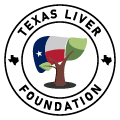
What We Do
Curious what TLF is all about? We’d love to tell you! We educate and offer resources to Texans who want to keep their liver healthy or are dealing with liver disease. Because we address a wide range of disease issues and liver health concerns, we have the capacity to impact millions of Texans. We are expanding our programs each year as we grow. Read more about our programs below. Let us know if you see a need that you’d like us to try to address.
